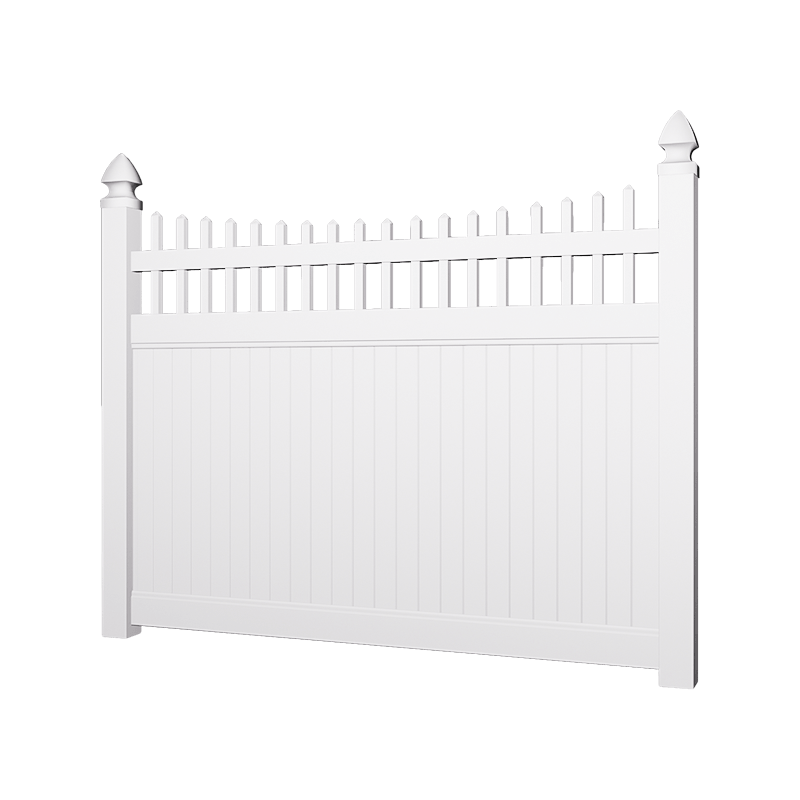 +86-572-8086381 / 8282992
+86-572-8086381 / 8282992  hzjfence1@hzjfence.com
hzjfence1@hzjfence.com  +86-572-8086381 / 8282992
+86-572-8086381 / 8282992  hzjfence1@hzjfence.com
hzjfence1@hzjfence.com 
Jan 07, 2025
PVC Privacy Fence is usually not easily corroded or damaged due to its strong weather resistance, but it may be affected by plant growth and other environmental factors during long-term use. To prevent PVC fences from being corroded or damaged by plants or environmental factors, the following methods can be adopted:
Plants, especially vines, will grow and attach to the fence, which may cause scratches on the fence surface and even the roots of the plants to enter under the PVC fence, causing stability problems for the fence. Regularly trim plants close to the fence to ensure that they do not overgrow and contact the fence.
Avoid vines and climbing plants near the fence: Vines (such as ivy, grape vines, etc.) tend to grow and entwine on PVC fences, and long-term contact may cause damage to the surface of the fence. Use fence protection nets or special brackets to guide these plants away from the fence.
When installing PVC fences, make sure the ground has good drainage to avoid moisture accumulation at the bottom of the fence. If moisture accumulates around the fence for a long time, especially in direct contact with the soil, it may cause the fence structure to weaken or breed mold. Installing a drainage system or adding a gravel layer at the bottom of the fence can help drain moisture and reduce the potential impact of moisture on the PVC fence.
Make sure there is no prolonged accumulation of water near the fence, especially seasonal flooding, rainwater accumulation and other issues. Prolonged exposure to standing water may affect the structural strength and appearance of PVC.
Although PVC fences have a certain degree of UV resistance, long-term strong sunlight exposure may cause its surface to fade, age or become brittle. Choose PVC fences with a UV protection layer, or apply a protective film on the surface of the fence to delay the damage of UV rays.
There are UV protection coatings designed specifically for PVC fences on the market. These coatings can effectively delay the damage to the fence from direct sunlight. Applying these coatings regularly will help extend the service life of the fence.
Some chemicals (such as strong acids, strong bases, paints, solvents, etc.) may damage the surface of PVC fences. During use, avoid spilling chemicals on the surface of the fence, especially when gardening, cleaning or pruning. If chemicals are accidentally splashed on the fence, they should be cleaned as soon as possible.
Clean PVC fences regularly with mild soapy water to avoid long-term accumulation of sand, dust, oil or dirt. Especially in places where they are exposed to pollution sources (such as automobile emissions, industrial exhaust, etc.), keeping the fence clean can reduce the corrosion of pollutants to the material.
Some plants, especially trees and shrubs, have roots that can penetrate deep into the soil and invade the base of a PVC fence, causing structural damage. Root guards or layers can be buried under the fence to prevent plant roots from putting pressure on the PVC fence.

Installing additional protective panels or slats on the lower part of the fence can effectively prevent plant roots from contacting the fence. Some animals, such as rabbits, rodents, etc., may try to chew the fence, especially the wooden or plastic parts. Although PVC fences are durable, they may still be scratched or attacked by animals. Metal mesh or other protective measures can be installed at the bottom or around the fence to prevent animals from contacting the fence.
Installing additional barriers, such as bottom mesh, can effectively prevent small animals from entering the fenced area from the ground and causing unnecessary damage to the PVC fence.
Even though PVC fences are durable, the condition of the fence should be checked regularly. Check for cracks, stains, or other damage, especially after storms, strong winds, or extreme weather. If problems are found, they should be repaired in time to prevent small problems from becoming larger.
If scratches or small cracks appear on the surface of the fence, they can be treated with PVC repair glue or patching tools. Promptly repairing damage can effectively extend the life of the fence and prevent further problems from worsening.
High-quality PVC fences usually have stronger UV resistance, anti-aging, and anti-corrosion properties. When purchasing, choose a brand with a good reputation and certification to ensure the quality and long-term stability of the fence.
Through the above methods, you can effectively prevent the PVC privacy fence from being corroded or damaged by plants, environmental factors or other external factors, extend its service life, and maintain the beauty and functionality of the fence.